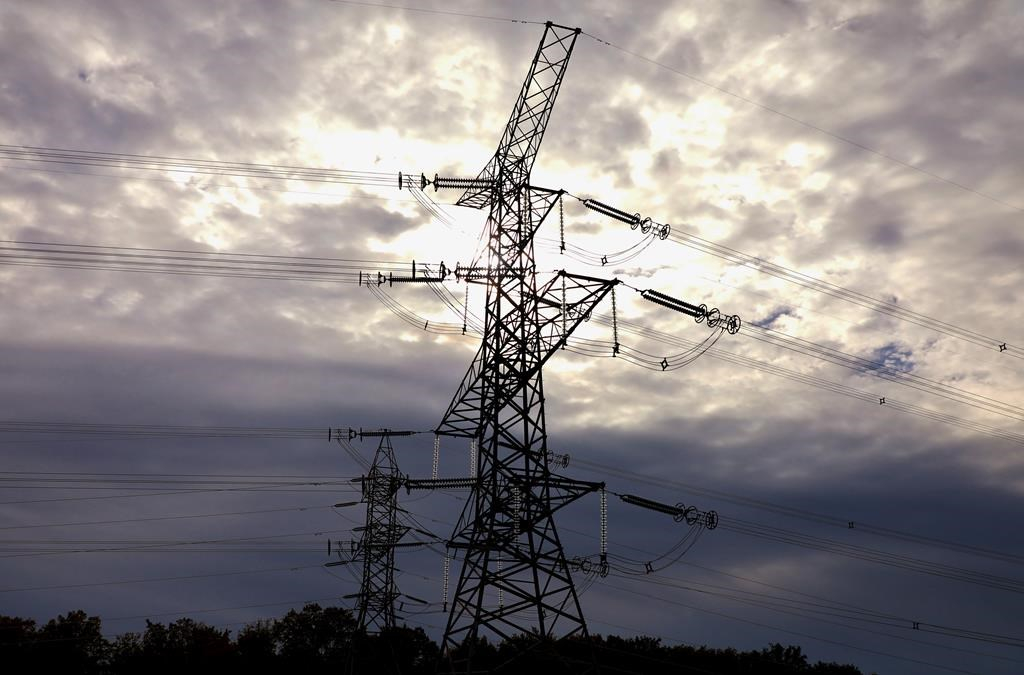Support strong Canadian climate journalism for 2025
Investigators at the Alberta Utilities Commission are asking the regulator to look into what they say is illegal behaviour by one of the province's largest and most prominent homegrown companies.
They allege ATCO Electric deliberately overpaid a British Columbia First Nation by millions for work on a new transmission line in order to secure lucrative contracts providing construction camps for the Trans Mountain Expansion oil pipeline project.
ATCO then tried to pass that overpayment on to Alberta consumers, says a public document from the commission's enforcement branch on its website.
The document also alleges company management was aware the arrangement was questionable and tried to cover its tracks.
"ATCO Electric has violated (its) fundamental duty of honesty and candour to its regulator — the duty upon which the entire regulatory system relies to function efficiently and effectively," says the document filed Nov. 29.
Company president Melanie Bayley says ATCO — a global $22-billion business based in Calgary, with recognized expertise in electricity transmission and logistics — went astray.
"There's no doubt that there were mistakes here," she told The Canadian Press on Tuesday.
But she said the problem is rooted in an attempt to build capacity among the Simpcw First Nation in Barriere, B.C.
The document says the commission's investigation focused on information provided by a company whistleblower into transactions between the Simpcw and two ATCO subsidiaries. It says ATCO Electric signed a contract with a company controlled by Simpcw for work on a transmission line the company was building into Jasper, Alta., in 2018.
Investigators say the value of that sole-source, non-bid contract was at least 30 per cent higher than its market value, adding more than $12 million to its cost. That amount was later tacked on to ATCO's request for a raise in the rates it charges consumers, says the document.
Simpcw took the money and subcontracted the work, as the document says ATCO suspected it would.
Commission investigators allege in the document that ATCO Electric issued the overpriced contract because it believed it would be crucial to a deal for another ATCO subsidiary, ATCO Structures and Logistics. That company had signed a joint venture with Simpcw and helps run three camps for the TMX project on Simpcw traditional territory, a contract the document says is worth up to $100 million.
"To give effect to the joint venture agreement and secure financial benefits for (ATCO Structures and Logistics) ... ATCO Electric sole-sourced the matting services for the Jasper Interconnection project," the document says.
"ATCO Electric admits that Simpcw 'were threatening to back out of the (Joint Venture Agreement) should ATCO Electric not award the contract to them.' This, in turn, would result in (ATCO) losing camp contracts for the Trans Mountain Pipeline expansion project."
Investigators go on in the document to allege senior ATCO staff knew the contract violated the company's own code of conduct and provincial law, which forbids regulated companies from making large sole-source deals. Investigators allege discussions went all the way up to ATCO Electric's senior levels of management.
Nevertheless, ATCO Electric issued the contract to Simpcw under another process that didn't require competitive bids, the document says. Investigators say that move was explained in an email to senior management not subject to disclosure requirements.
"This approach was deliberately taken ... on the belief that this strategy would reduce the risk of the complete facts being discoverable by the (Commission) in regulatory proceedings," the document says.
The document says the Simpcw were of the view that the joint venture agreement between ATCO Structures and Logistics obligated all ATCO subsidiaries to offer Simpcw the exclusive right to provide contracts related to electricity transmission and distribution services.
Enforcement staff do not allege that Simpcw or its related entities engaged in any wrongdoing with respect to this matter.
A request for comment from the band's chief and administrator was not returned.
The company said in a news release that the reasons for its "errors are complex, occurred over a five-year period and are not solely attributable to any one person or team."
In the interview, Bayley defended the overpriced contract for the Simpcw as a way to help the First Nation build capacity in a new area of business.
"There was a payment that was higher than market rates, but it's important we understand the context in which businesses like ATCO engage with First Nations contractors," she said.
However, she characterized the decision to pass that cost onto consumers as one of the company's mistakes.
Bayley said ATCO has completed an internal investigation. And the company has proposed a series of remedies, including removing nearly $11 million from its rate hike request. ATCO is also tightening its First Nations contracting procedures.
All parties need to step carefully as businesses, First Nations and regulators work out how Indigenous communities can take part in economic opportunities on their lands, Bayley said.
"There's a balance that has to be struck here around the obligation of business under reconciliation to support Indigenous communities. That requires going the extra mile.
"But maybe the lesson is around how that obligation finds its way into the rules of regulators."
Commission spokesman Geoff Scotton said the agency will consider what to do with the investigative findings.
"A commission panel will take a look at the application and they will decide what the next steps in the process will be," he said. "They may seek input from other parties."
The investigators are asking ATCO to refund the money it received from rate increases due to the overpriced contract as well as any other penalties. Those penalties can be as high as $1 million per day per offence.
This report by The Canadian Press first published Nov. 30, 2021





Comments